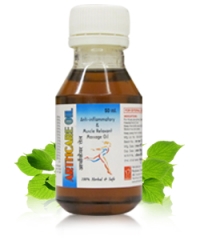Many people when diagnosed with a disease or health condition of some sort, will oftentimes be so overwhelmed and shocked by the fact that their health is less than optimal that they will then try and abdicate responsibility, and so they expect their physician to assume complete responsibility for the treatment of the symptoms.
The simple truth of the matter is that doctors and medical professionals are more like guides: they will advise us and intervene by means of medication and surgery to try and fix the health issues we endure, whether these be arthritis or other maladies. However, we must work in conjunction with our doctors, listen to their advice, follow their instructions, and ensure that we adhere to the recommendations that they present us with.
Part of the problem with ankle replacement surgery, is that many patients who suffer from arthritis seem to be of the view that it is a magic bullet, something that will ultimately alleviate all their pain and fears, and so they take a very passive role. However, this is a very tricky and complex surgery, and it is not one that can be performed easily. There are a lot of potential risks and things that could go wrong during the procedure and it is for that precise reason, that the patient must ensure that they take the time to prepare themselves before the surgery.
Recommended Products
The following is a brief and succinct overview of some practical, active steps that the patient can take to ensure that they maximize the chances of success for their ankle arthritis surgery.
What steps can I take before my ankle replacement surgery?
- Refrain from smoking, for a minimum period of 2-3 weeks prior to the ankle replacement surgery being performed. The reason for this is that smoking will increase the chances of a blood clot forming, and will significantly delay the healing process. Smoking increases the chances of the patient suffering an infection by 16 times.
- The patient should reduce their intake of certain types of medication, specifically, medication that thins the blood. Aspirin, Waforen, Naproxen and others, should be reduced. If the blood is too thin, this causes problems with the wound healing.
Caution: Please use Home Remedies after Proper Research and Guidance. You accept that you are following any advice at your own risk and will properly research or consult healthcare professional.


